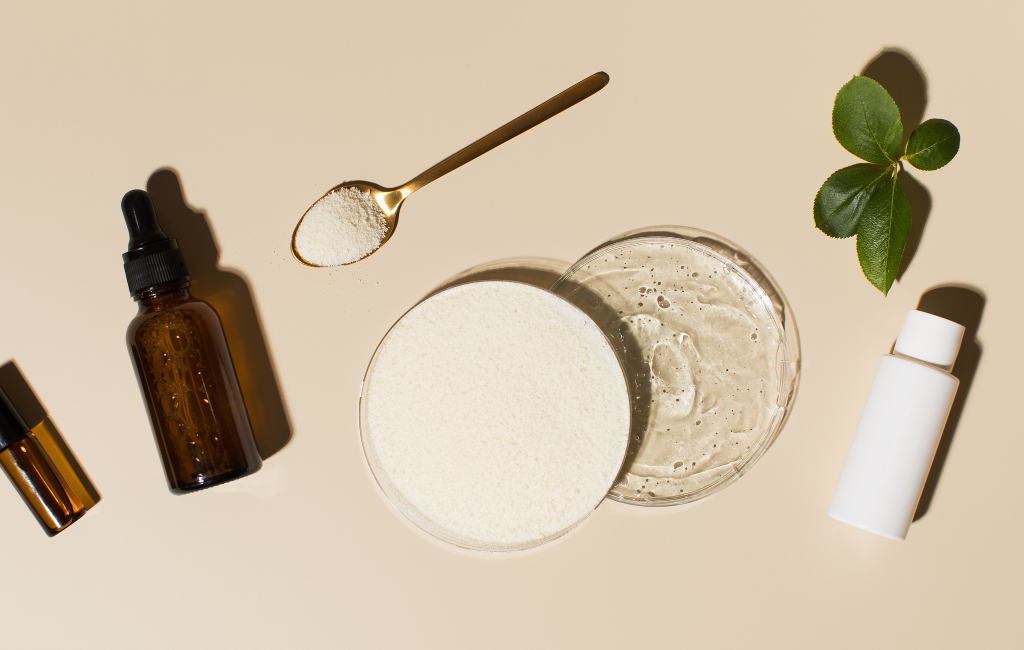-
Table of Contents
- Peptides: Unlocking the Secrets to Enhanced Recovery
- Understanding Peptides
- Types of Peptides
- The Science Behind Peptides and Recovery
- Muscle Repair and Growth
- Reducing Inflammation
- Case Studies and Real-World Examples
- Case Study: Collagen Peptides and Joint Health
- Case Study: BPC-157 and Tissue Regeneration
- Practical Applications and Usage
- Oral Supplements
- Injections
- Topical Creams
- Potential Side Effects and Considerations
- Allergic Reactions
- Gastrointestinal Issues
- Conclusion
Peptides: Unlocking the Secrets
Peptides have emerged as a significant player in the field of health and fitness, particularly in the context of recovery. These short chains of amino acids are the building blocks of proteins and play a crucial role in various biological functions. This article explores how peptides can enhance recovery, supported by scientific research, examples, and case studies.
Understanding Peptides
Peptides are composed of two or more amino acids linked by peptide bonds. They are smaller than proteins and can be absorbed more easily by the body. Peptides are involved in numerous physiological processes, including hormone production, immune function, and tissue repair.
Types of Peptides
- Collagen Peptides: Known for their role in skin health and joint support.
- Creatine Peptides: Popular among athletes for enhancing muscle strength and recovery.
- BPC-157: A synthetic peptide that promotes healing and tissue regeneration.
- Thymosin Beta-4: Involved in wound healing and reducing inflammation.
The Science Behind Peptides and Recovery
Research has shown that peptides can significantly impact recovery by promoting muscle repair, reducing inflammation, and enhancing overall healing processes. For instance, a study published in the Journal of Sports Science & Medicine found that collagen peptides improved joint pain and mobility in athletes.
Muscle Repair and Growth
Peptides like creatine peptides are known to enhance muscle repair and growth. They increase the availability of creatine in the muscles, which is essential for energy production during high-intensity exercise. This leads to improved performance and faster recovery times.
Reducing Inflammation
Inflammation is a natural response to injury or intense exercise, but excessive inflammation can hinder recovery. Peptides such as BPC-157 and Thymosin Beta-4 have anti-inflammatory properties that can help reduce swelling and promote faster healing.
Case Studies and Real-World Examples
Several case studies highlight the effectiveness of peptides in enhancing recovery. For example, a study involving professional athletes showed that those who supplemented with collagen peptides experienced a significant reduction in joint pain and improved performance.
Case Study: Collagen Peptides and Joint Health
A group of 147 athletes participated in a study to assess the impact of collagen peptides on joint health. Over a period of 24 weeks, participants who took collagen peptides reported a 40% reduction in joint pain compared to the placebo group. This improvement allowed them to train more effectively and recover faster.
Case Study: BPC-157 and Tissue Regeneration
In another study, BPC-157 was administered to individuals with tendon injuries. The results showed a significant acceleration in the healing process, with participants experiencing reduced pain and increased mobility within weeks.
Practical Applications and Usage
Peptides can be incorporated into recovery routines in various ways. They are available in different forms, including oral supplements, injections, and topical creams. The choice of peptide and method of administration depends on the specific recovery needs and goals.
Oral Supplements
Oral supplements are a convenient way to consume peptides. Collagen peptides, for instance, can be added to smoothies or taken in capsule form. They are easily absorbed by the body and can support joint health and muscle recovery.
Injections
Injections are often used for peptides like BPC-157 and Thymosin Beta-4. This method allows for direct delivery to the affected area, promoting faster and more targeted healing.
Topical Creams
Topical creams containing peptides can be applied directly to the skin. They are commonly used for wound healing and reducing inflammation in specific areas.
Potential Side Effects and Considerations
While peptides offer numerous benefits, it is important to be aware of potential side effects. Some individuals may experience allergic reactions or gastrointestinal issues. Consulting with a healthcare professional before starting any peptide regimen is advisable.
Allergic Reactions
Some people may be allergic to certain peptides, leading to symptoms such as itching, swelling, or difficulty breathing. It is crucial to monitor for any adverse reactions and discontinue use if necessary.
Gastrointestinal Issues
Oral peptides can sometimes cause gastrointestinal discomfort, including bloating or diarrhea. Starting with a lower dose and gradually increasing it can help mitigate these effects.
Conclusion
Peptides have shown great promise in enhancing recovery through their roles in muscle repair, inflammation reduction, and tissue regeneration. Supported by scientific research and real-world examples, peptides offer a valuable tool for athletes and individuals seeking to improve their recovery processes. As with any supplement, it is important to approach peptide use with caution and consult with healthcare professionals to ensure safe and effective results.
